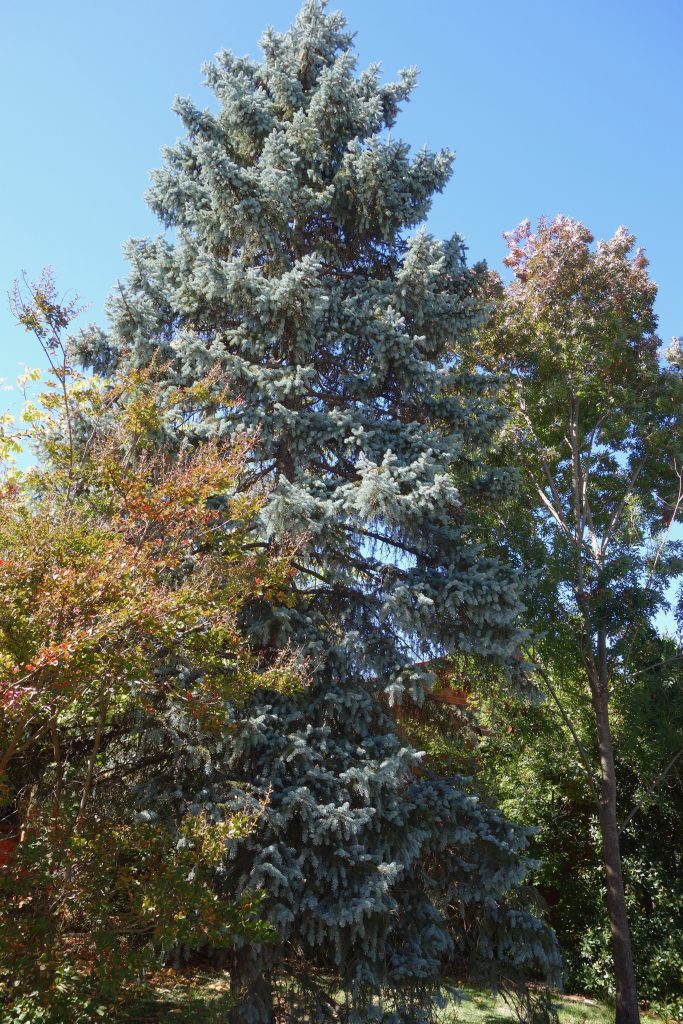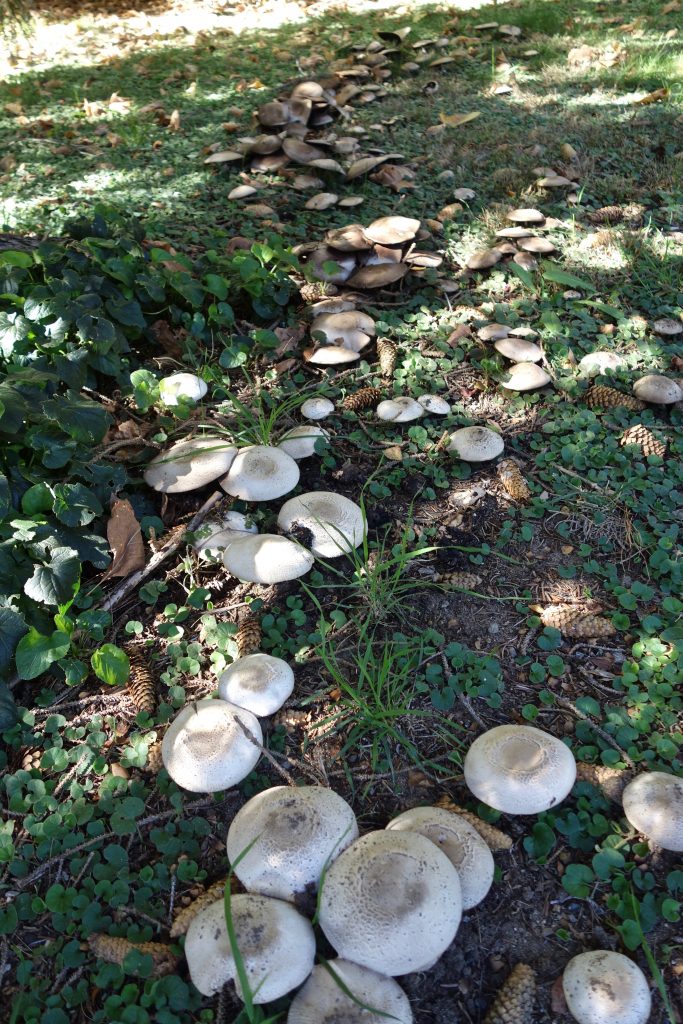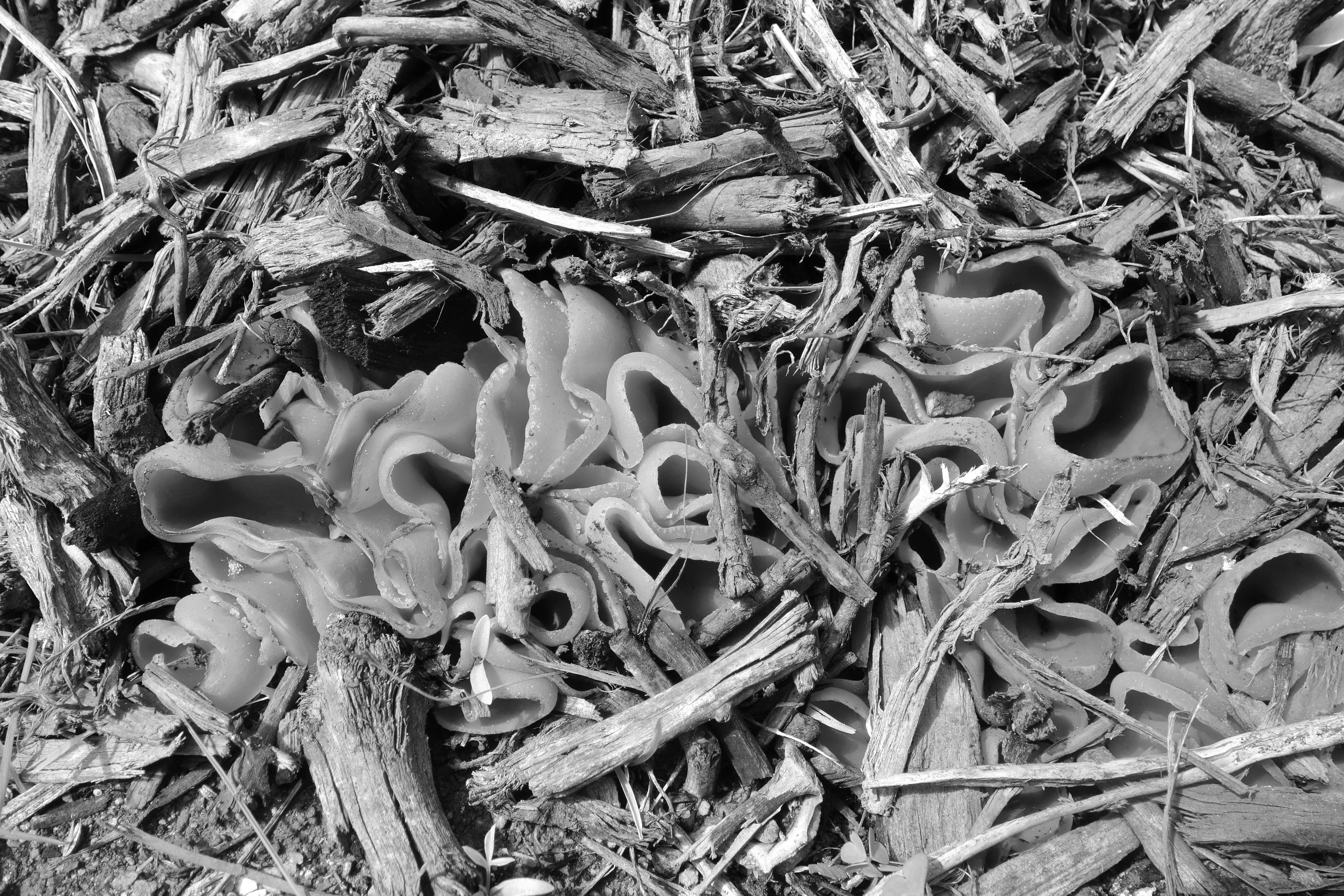From time to time a fairy ring grows beneath my Spruce fir tree. At the moment it’s not a whole circle but more of a semi-circular meandering of mushrooms across the lawn. It’s been growing for about a week and must be following a long root of this tall tree.
On Sunday I noticed one particular mushroom coming up in the nearby garden about five metres from the beginning of the line. It’s like a pop-up house for little people, and evokes Faerie, that land of enchantments and enchanted beings.
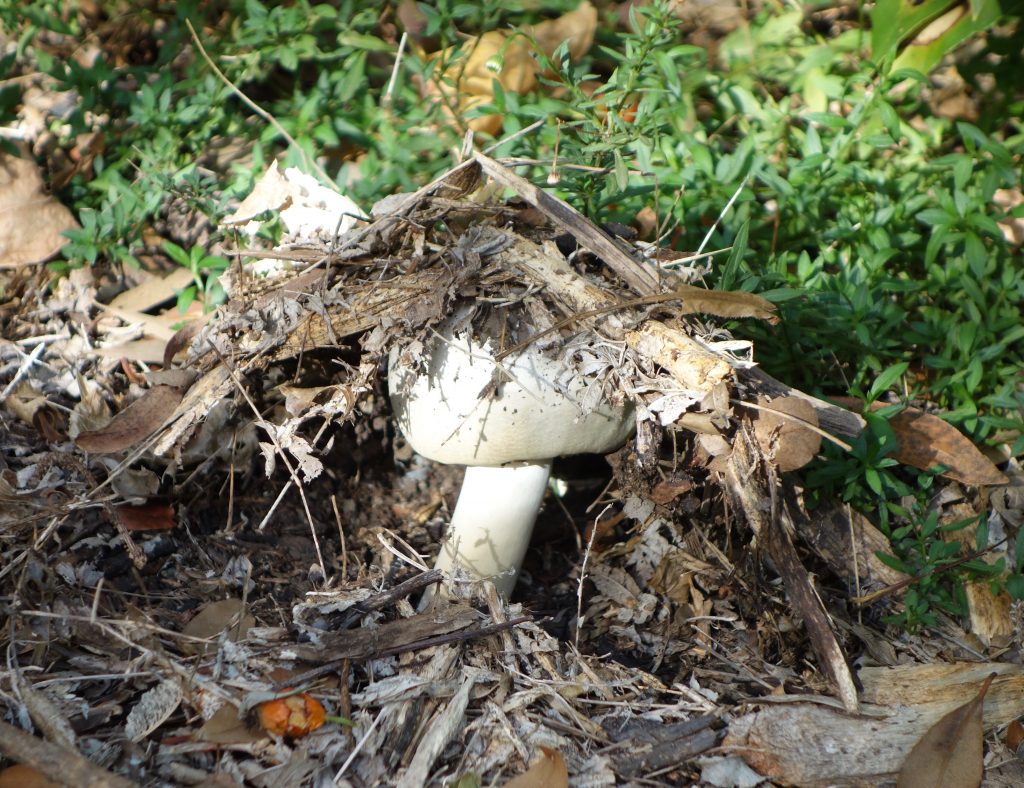
It’s expanding as it ages, yet the leaf-litter roof is still in place.
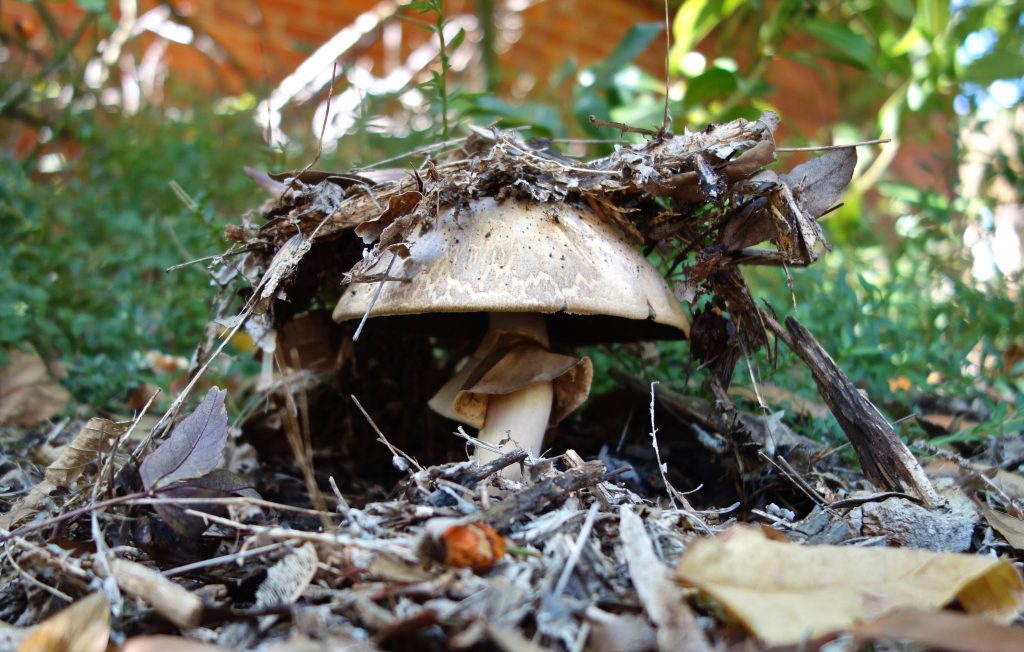
The small shelter over the mushroom makes it easy to understand why children could believe there are tiny fairy-folk residing within.
But recently I learnt that not only children have believed in fairies! Writers of Faerie in the 19th century (about 90% of whom were men) expressed a fearful respect for the little winged women, often passing a mention in their tales that fairy love was fatal to men. Male authors were wary of a fairy for she could transform or disguise herself. Small as she was, she could be mistaken for an insect or a bird, she could even become invisible, and, most dangerously, she could turn herself into a real woman. But the rule was that no man could love her and live.
I’ve read a lot of French fairy tales and have found it to be true. In Théodore de Banville’s story “La Chiffonnière”, for example, a fairy becomes an old ragpicker who is almost trampled by horses, but a kind-hearted poet picks her up where she falls, and in his arms she is rejuvenated, now young and beautiful. Though she wants to give him her love as a reward for saving her life, she knows it would kill him. Instead she offers him the finest cigar in the world, and four wishes.
Fairy rings are also things to beware of, to tread carefully around and not through. Men who entered the ring often disappeared and those who were tempted needed to be rescued. It seems the ancient curse has exhausted its power, for I’ve often stepped into mushroom rings in my lawn but have never disappeared…
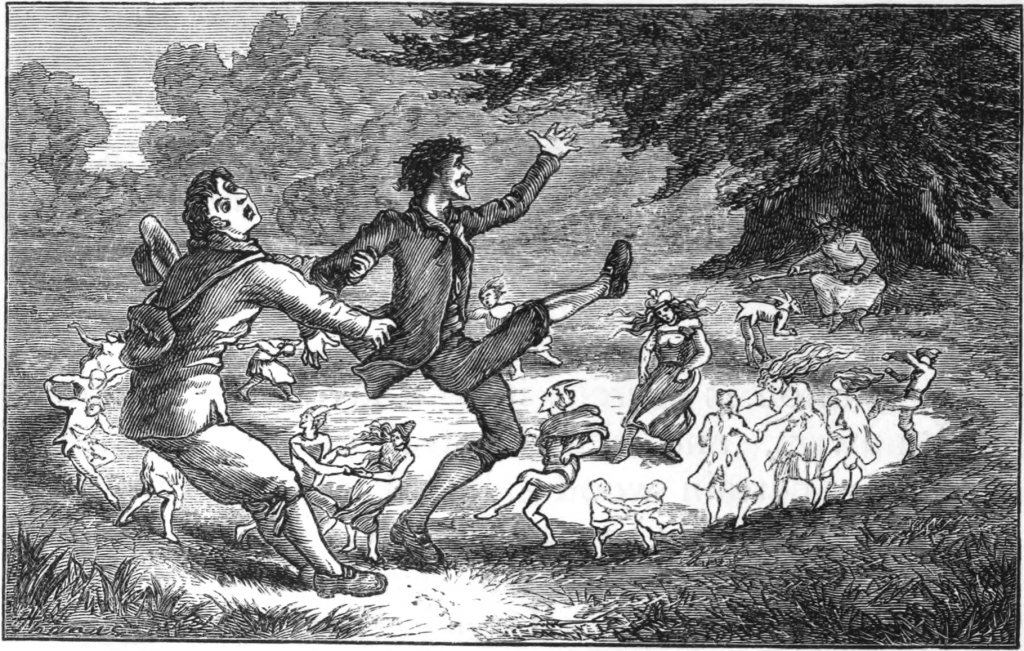
While I know these fairies are not really magical, I also know that, in my garden, suddenly emerging fungi certainly are.
*

